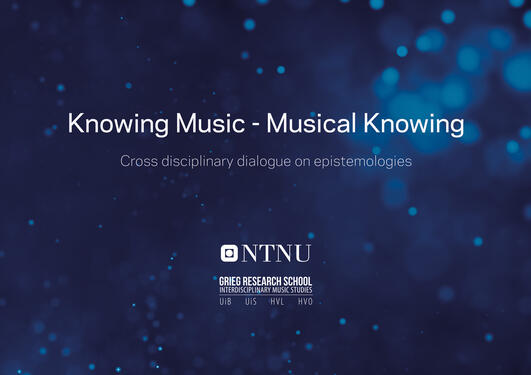Sylvia Nannyonga-Tamusuza
Knowing Music, Understanding Dance and Understanding Dance, Knowing Music: Baakisimba Dance-Musicking among the Baganda Uganda
Hovedinnhold
The conceptualization of dance as a separate entity from the music that accompanies it is foreign to many cultures and especially Africa. Music and dance are highly integrated that the search for knowing dance calls for the understanding of the music that accompanies it and dialogically, the pursuit for understanding dance music requires the knowing of the dance that it accompanies.
Using an example of baakisimba, a dance and music of the Baganda people in central Uganda, in this lecture, I examine the dialogical relationship between music and dance. I examine dance as music that is seen, but may not always be heard, and music as dance that is heard, but may not always be seen. I contend that dance is audible and non-audible, and music is both aural and visual and, therefore, music is dance and dance is music. I conclude that to have an in-depth analytical knowledge of dance, it is a necessity to equally examine the music that accompanies it. This lecture will be interactive and practical.
Key Questions
- What is the relationship between music and dance?
- How does knowledge of music explain the understanding of dance?
Recommended Reading
Felfoldi, Laszlo. 2001. “Connections between dance and dance music: Summary of Hungarian Research. Yearbook for Traditional Music 33:159-165.
Nannyonga-Tamusuza, Sylvia. 2015. “Music as Dance and Dance as Music: Interdependence and Dialogue in Baganda Baakisimba Performance,” in the Yearbook for Traditional Music. 47: 82-96.
__________2005. Baakisimba: gender in music and dance of the Baganda people of Uganda. London and New York: Routledge.
Further Preparation
- Watch this video: https://www.youtube.com/watch?v=2FcRT-ZVMxU
Biography
Dr. Sylvia Antonia Nannyonga-Tamusuza is Associate Professor of Music and Head of Performing Arts and Film Department at Makerere University. Nannyonga-Tamusuza is the Coordinator of the Ethnomusicology in Uganda Projects and the founder and Curator of the Makerere University Klaus Wachsmann Audio-visual Archive. She has published on popular music, Catholic church music, school music competitions, dance as music, sexuality in music and dance, politics and gender in music, the interface between ethnomusicology and music education, and identities in diasporic music, music repatriation and archiving. Her publications include the book Baakisimba: Gender in Music and Dance of the Baganda People of Uganda (Routledge, 2005), as well as many articles in journals and edited volumes. She is co-editor of Ethnomusicology in East Africa: Perspectives from Uganda and Beyond (Fountain 2012). Her present research is on Women’s negotiation for peace and conflict resolution using expressive arts; Gendered mobile music and archival studies based on the Makerere University Klaus Wachsmann Music collections. Nannyonga-Tamusuza is a member of the Society for Ethnomusicology and is part of the Strategic Direction (2017-2021) Planning Committee.

